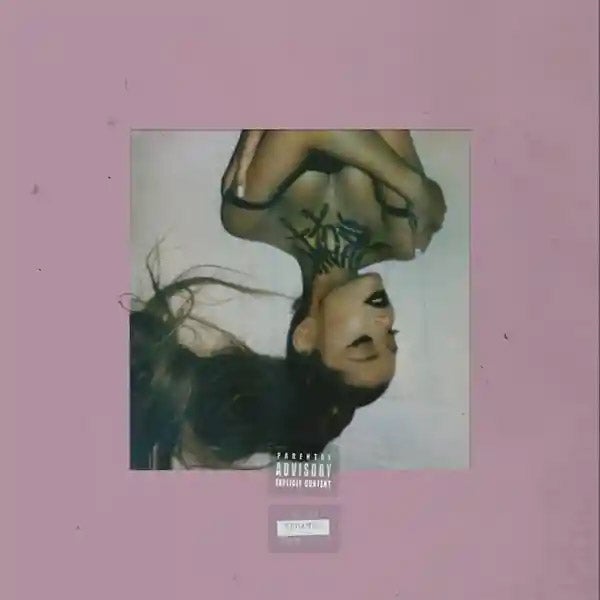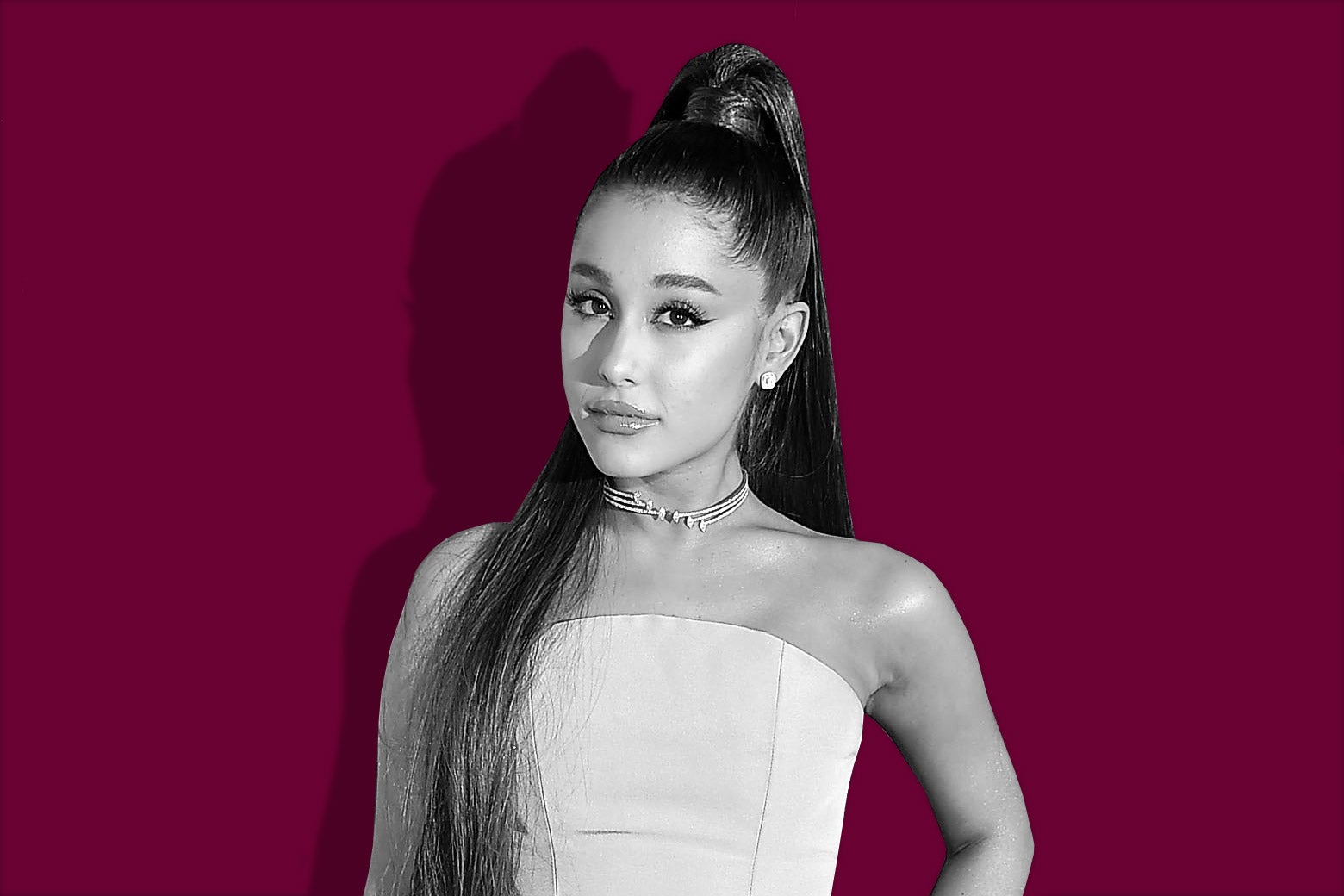In a December interview with Billboard, Ariana Grande issued what a lot of people hoped was a kind of manifesto when she said, “My dream has always been … to put out music in the way that a rapper does. I feel like there are certain standards that pop women are held to that men aren’t. We have to do the teaser before the single, then do the single, and wait to do the preorder … and all this shit. It’s just like, ‘Bruh, I just want to fucking talk to my fans and sing and write music and drop it the way these boys do.’ ”
That the elastic-voiced young diva’s new album Thank U, Next arrives less than six months after her last, Sweetener, kinda-sorta fulfills that mandate. But it seems closer to the fevered production rate of earlier decades’ Top 40 radio stars (the early Beatles are the obvious example) than to the laissez-faire, mixtape-and-single–oriented schedule of some rappers. The title single did drop unexpectedly in November. Otherwise the rollout followed the usual modern pattern of teasers and singles and previews, just on a compressed timeline, followed by the midnight release on Thursday’s appointed calendar date.
It’s an even stronger collection than its forerunner, which was then the most strikingly personalized in her brief, action-packed career. But it’s still more conventional than that mirage of a 2019 when Grande would use her peak-of-the-pop-pyramid status to spring unpredictable who-knows-whats on us at her own spontaneous pace. Perhaps it was record-company jitters, or force of habit for Grande as a lifelong pro. But judging by the material, the 25-year-old star might understandably not feel as free-spirited as she wants to assert after the personal upheavals of the past two years. While the record is sometimes overinsistent about her carefree independence, its presiding spirit is more torn and serious—to the music’s benefit. As Grande sings on “Ghostin’,” she’s now “a girl with a whole lot of baggage.”
Sweetener was defined by her effort to bounce back from the effects of the 2017 terrorist attack on her arena concert in Manchester. Thank U, Next is inevitably being received as a report on the recent breakup of Grande’s brief, highly public engagement to Saturday Night Live personality Pete Davidson and, shortly before that, the death at 26 of her previous long-term partner, rapper Mac Miller. The best songs here would stand on their own without any of this background info. But when the proceedings intermittently drag, it’s hard for the mind not to wander to which lyrics are about whom. It makes me wish I lived in some impossible non-Instagrammed universe where I could listen in ignorance of “narratives” that are none of my business.
The past couple of weeks have also been cluttered with background noise more in keeping with Grande’s younger, brattier, doughnut-licking days than with her recent role as a sympathetic and inspiring survivor. There were her mistranslated Japanese “7 Rings” tattoo follies and the thematically related charges of cultural misappropriation in that same song: Soulja Boy, 2 Chainz, and Princess Nokia all scowled over Grande supposedly biting their flows. I won’t rehash those debates here, though the fact there have been multiple accusations about the same few lines (referencing different tracks from across the decade) does make one wonder how distinct those vocal patterns are by this point. And as Lauren Michele Jackson recently argued in Vulture, Grande has a longer-standing, more integral relationship with hip-hop and R&B than most white artists. I’m not saying white parasitism is a dead issue, of course—not during a month that’s seen the resurfacing of the ugly, persistent legacy of blackface in mainstream American society. Less clear-cut is whether that makes routine pop appropriations seem more trivial, or less.

Thank U, Next does show off how fluidly Grande (along with her producers and other collaborators) synthesizes a wide repertoire of styles. There’s the “My Favorite Things” showtune pastiche that opens “7 Rings” itself, the widely sampled Wendy Rene 1964 Stax single “After Laughter Comes Tears” that forms the spine of the blunt-talking “Fake Smile,” the lovers-rock and “tropical house” accents that crop up occasionally throughout, the trap inflections all over the production, and Grande’s most extensive use of rapping (or near-rapping) yet, as if she were supplying her own guest features. Not to mention the way she draws vocally on every option in pop and R&B singing from at least 1990s Mariah Carey to the present (often many of them at once in multitracked chorus with herself) but makes them all seem a little more millennially conversational than before.
It’s out of this mélange of voices that, with her virtuosity and self-awareness, Grande creates a voice of her own, like any other artist. The blame belongs more with a music industry and listening public (and yes, critics) that find someone like Grande’s sound more digestible than syntheses made by today’s black R&B singers—for instance, Dawn, who put out her excellent New Breed album in January to little fanfare.
Song by song, meanwhile, Grande keeps hitting winning streaks, though she can’t always sustain them. Mostly she falters when she’s being produced by the declining pop-studio potentate Max Martin. His touch tends to sound square, overstated, and outdated compared with what she achieves alongside fresher talents such as Happy Perez, Andrew “Pop” Wansel, Tommy Brown, and the duo Social House. There’s the vulnerable and engrossing opening run of “Imagine,” “Needy,” and “NASA”—the latter a favorite of mine that keeps finding new melodic and verbal twists in the punny concept of a lover being asked not to stay the night because Grande needs to “explore” her own “space.” But that trio slams up against Martin’s bludgeoning “Bloodline,” wherein the Swedish maestro tries to communicate the idea of not wanting to get serious with a partner through the phrase “don’t want you in my bloodline.” The presumably inadvertent, creepy racialism of the phrase calls to mind that time 20 years ago when the non-native English speaker was searching for a catchy way for a teen girl to say “call me up again, honey” and settled on “Hit me, baby, one more time.”
Likewise, the late sequence of “In My Head” (a look at romantic projection) and the twin hits “7 Rings” and “Thank U, Next” is about to bring the album to a cathartic conclusion when it runs into the new Martin-made single “Break Up with Your Girlfriend, I’m Bored.” It comes with lyrical attitude but a formulaic musical template, and by halfway through, I’m bored, too. It was a last-minute replacement for a closing track that Grande said she decided was too personal to release. Especially when held up against Sweetener closer “Get Well Soon,” a vocal and emotional showcase, it’s quite an anticlimax.
There is one fine Martin-helmed track, though, the aforementioned “Ghostin’.” The swelling ambient synthesizer accompaniment is nothing special. But it leaves plenty of room for Grande to sing the bedsheets off of a lyric that plays on the old-fashioned and current meanings of ghost (both noun and verb) with a heartbreaking mea culpa to a current partner for being unable to shake the memory of a past (possibly dead) amour. A love song likes nothing better than a triangle, of course, but it’s the function of any good pop song to make old feelings seem new, as if (absurdly) no one had ever expressed them before. And then who gives a damn who the artist literally had in mind? The song is about you.
Grande’s glib side can be fun, but the fact that she can do that with a pop song is what will keep her around. With each new release, and no doubt with each ordeal, she gets more deft at finding those tender spots. I hope that growth comes less painfully and more on her own timetable in the future—but that’s not something any of us, even a superstar, gets to control.
